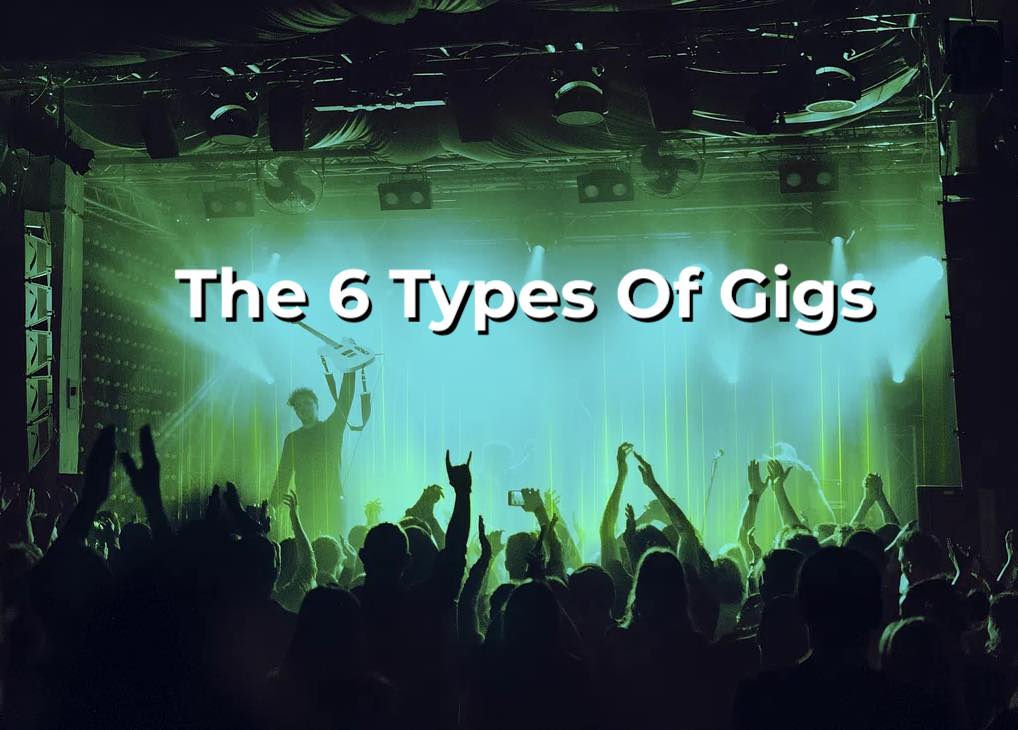- in Book Excerpt , Live Sound by Bobby Owsinski
The 6 Types Of Gigs Musicians Can Expect To Play
For an artist, musician or band, not all gigs are created equally, mostly because of the stature of the artist and the purpose of the gig dictates the type of venue he or she plays. As a result, gigs can be divided into six general categories; local shows, one-offs, fly dates, mini-tours, full tours and corporate gigs. Here’s an excerpt from my Touring Musician’s Handbook that explores each one.

The Local Show
Local shows are easy. You get to sleep in your own bed, you probably have a good bit of the day (at least the morning) to attend to personal matters, and you get to play in a familiar venue in front of friends and family. You can’t really call a local show part of a tour (unless you happen to be passing through town during a real tour), but these types of shows are frequently used as a warm-up before the tour starts. It’s a good time to fine tune the set list, hone the production, and tighten the band. It’s a sweet gig, but there’s never enough of them and they’re all too short. Fun, though.
The One-Off
The one-off is a single show where you return home after it’s completion. It can be relatively local or it can be half-way around the world, but regardless of how long it takes you to get there, you’re still only playing a single show.
The typical one-off generally means that there’s at least some travel time involved (you might arbitrarily say a couple of hours) which basically means that your entire day is consumed leading up to the gig. If you can’t do much else in your day but travel, sound check and play the show, you’ve experienced a one-off.
The Fly Date
The Fly-Date is the most desirable type of one-off that you can get, and means that you’re flying on a plane out of town for the show, then directly returning either the same day or next (it might take a little longer it your gig happens to be in an exotic place). You may do a series of fly-dates, but you’re always returning back to your home base after the gig.
Acts like Aerosmith and Madonna might only do fly-dates for an entire tour, but they have private jets that can take them exactly where they need to go and bring them back to their airport hub directly afterwards without having to worry about the rigors of commercial aviation. That’s not the case for the players in a touring band, who may have to fly commercially, although it may be in business or first class.
Fly dates have their own set of challenges, since there’s always a limitation to the gear that you can bring and what you can carry on the plane with you.
The Mini-Tour
Anything that’s two dates to a week on the road is considered a mini-tour. This means that you’re away from home for that entire duration and don’t see your own bed until you return. If a band from Boston books a show in New York and then returns directly home after the gig, that’s a one-off. If it books shows in Providence and New Haven on the way and doesn’t return home to Boston after either one, that’s a mini-tour.
Mini-tours are inefficient and difficult to make money on since there are are few economies of scale with labor and rentals. The bus, bus driver, techs and tour managers usually cost more since everyone would rather take a longer gig for the job security, and a short gig might get in the way of that happening. Aside from the money aspects, it is a desirable gig, since you’re not away from home for very long.
The Full Tour
Once you get past a week out on the road where you don’t return home, you’re on a full tour. Tours can range from a week to a couple of years, in the case of a major act with a hit album. If the album continues to stay hot, the tour will keep going in order to take advantage of the momentum, even returning to play the same city a second and third time.
Many touring musicians refuse to sleep at home even when a tour travels through their home town, preferring to stay in the mood and rhythm of the tour. Even though it might feel good to sleep in your own bed, it can be mentally disruptive, not to mention financially harmful since the business manager might decide that you don’t need the per diem for the day since you’ve telegraphed that you didn’t use your hotel room. It’s OK to go home to do your laundry and check in on things though.
The Corporate Gig
The corporate gig is a somewhat modern event where an artist or band plays what amounts to a private party for a corporate entity. Once upon a time this type of gig was frowned upon and deemed a “sell-out,” but as the touring business has become more mature and financially aware, the corporate gig is currently the industry’s cash cow. It’s now become commonplace for a Fortune 500 company to hire superstar acts and pay them sums that exceed their normal nightly take when on tour, but much smaller acts (including many that don’t have national visibility) benefit immensely as well.
Corporate gigs are normally one-offs and fly-dates, since most are so lucrative that they’re worth playing even if the artist or band is not currently on tour.”
You can read more from The Touring Musician’s Handbook and my other books on the excerpt section of bobbyowsinski.com.

